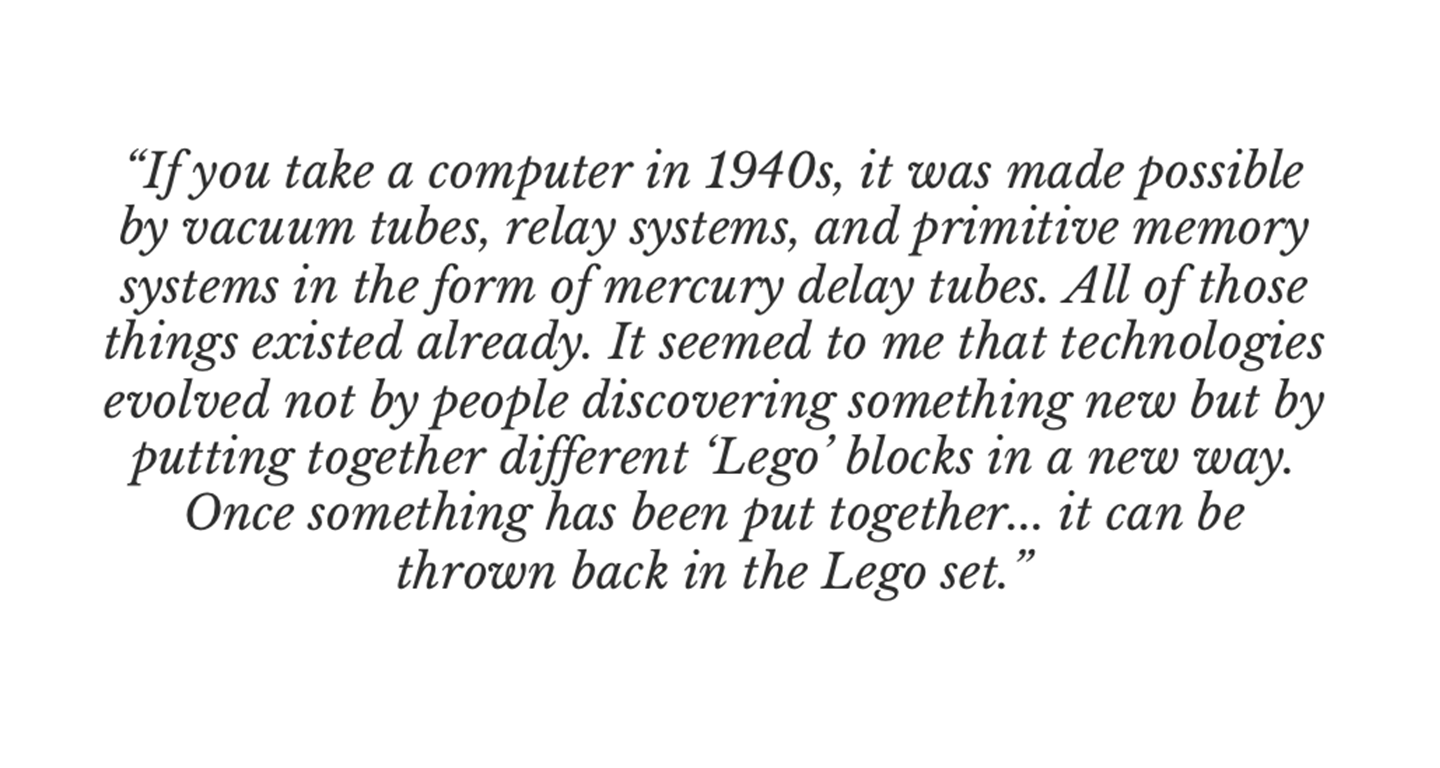
You’re Thinking About The Future Wrong
Lately I have been quite bored of the conversation going on about the future. This is unusual for me, being a futures practitioner, innovator and avid science fiction reader.
For example, the conversation around autonomous vehicles usually provides ‘insights’ such as:
- “You will be able to read while driving!”
- “Roads will become less congested as people are inefficient.”
- “There will be fewer accidents since algorithms don’t get distracted by smartphones.”
- “The car interior is going to become the ‘third space’ where you can work and play.”
They focus on the future of the passenger experience and design considerations for vehicle manufacturers, yet largely overlook the economy that exists around and is dependent on transportation – which is almost everything.
Overlooking the consequences of technological and social developments has disastrous consequences. If you look to companies on the S&P 500, their average lifespan has decreased from 60 years in 1958, to under 20 years today. These companies died because they failed to anticipate change, and before they knew it, it was too late to catch the wave.
This change can take the form of threats to the business as usual approach, and also opportunities. Take the historical example of why summer is ‘blockbuster season’ – despite the idea of being in a dark room during the glorious sunshine seeming an odd combination. When air conditioning technology first arrived in the 1920s, it was too expensive for individual households. Cinemas jumped on this opportunity by being the first to embrace air conditioning, and the cinema became the place to be on a swelteringly hot day.
From the 1920s to today, the pace of change has increased dramatically – reflected in the diminishing lifespan of S&P companies. Yet, there is a real lack of adventure to really march forth and uncover new lands of the unexpected that change the way we view our entrenched beliefs about the familiarity of today. A Heart of Darkness for the future you could say.
Instead, we are inundated by timid day trips to the future of familiarity. They focus on talking about that new thing, yet overlook the fundamental changes that this new thing actually unleashes. An example of this is the current conversation about autonomous vehicles that fails to imagine beyond the obvious that we can do other things in them whilst not driving, missing out on the shift in our relationship with our surroundings when vehicles are not just autonomous, but cheap, fast and on-demand.
The intention of these day trips are to stake a claim to some emergent field, demonstrating prowess of “look how well we think about this new thing”. By failing to challenge our entrenched beliefs about the present, to quote Marshall McLuhan, “[we] look at the present through a rear-view mirror. We march backwards into the future.”
This linear cause & effect style of thinking is an understandable cognitive bias. We are hard-wired to presume that the world behaves linearly and life will continue as it has. If our minds were to naturally think about all the unexpected trajectories of change it would take up too much of our brain’s RAM. The day is followed by night, followed by day again – we don’t want a brain that questions that. The brain is efficient precisely because it automates much of the interpretation of the world around us. The downside of this is that it makes exponential change very hard to anticipate.
This exponential increase in change is largely driven by technology, which is able to build upon previous technological innovation to unlock more innovations at an even faster rate. A beautiful analogy of this was made by W. Brian Arthur in a recent conversation with Benedict Evans and Sonal Chokshi:

As new technologies made from existing technologies are added to this proverbial Lego box for others to use, it increases the number of possible combinations, pushing technological development forward.
This change happens all the time as a constant drip of change. Yet, every now and then, a Lego block is created with huge potential that can be combined with many other existing blocks touching many parts of our lives. When these technologies arrive, there is a sudden leap forward. It is during these leaps forward that the word ‘disruption’ can be truly applied (a word like ‘innovation’ whose meaning is watered down through overuse). Since they touch so many parts of our lives, it feels like everything is in flux as it settles into a new world order. New business models are born that take advantage of these new dynamics, whilst others become irrelevant or act too late to capture the opportunity.
In moments like these, on the cusp of fundamental technological shifts, it is important to overcome linear thinking, forget preconceptions about what the future might look like, and hunt for the unexpected. I call this hunting for the Ripple Effects of innovation.
Therefore, Ripple Effects is a method and a mindset that seeks to explore and understand the unexpected consequences of technological change.
It is a method because, as established earlier, our minds are wired for linear thinking and we need structure and process to overcome this.
It is a mindset because we need a to cultivate an innate curiosity to ponder the consequences of “if this then that”, rather than stay on a surface level. Doing so involves a willingness to jump between categories to see the connection with previously unrelated ideas. This might sound like cliched creativity, but it is the lifeblood of being an innovator at Fahrenheit 212 (clichés are only clichés because they are true).
Seeking out the unexpected is not just a way to apply rigour to existing strategy, but also a means to uncover opportunities. Any vision or strategy we create for our clients at Fahrenheit is inevitably a leap into the future. We are not just new designing business models and customer experiences for the now, but for that future also. Therefore, being able to future-proof our clients against unexpected threats whilst uncovering untapped opportunities is essential to an effective project outcome.
As part of our DNA to bring an outside perspective to problems, we are always asking ourselves questions like “what can wellness learn from entertainment aggregators?” or “what if a building behaved like an operating system?”. With a mindset like Ripple Effects, we are also able to ask questions like “how will AVs affect hotels?” or “how will AVs affect urban sprawl?” or “how will AVs affect elderly care?”. These questions unlock a world that is a far cry from the status quo of today, brimming with exciting possibility to imagine the business models and experiences that will arise from it.
Now that’s my boredom well and truly kicked. Watch this space as we use Ripple Effects to explore the unintended consequences of some impending instigators of change.
Illustration by Will Brown

frog, part of Capgemini Invent is a global design and innovation firm. We transform businesses at scale by creating systems of brand, product and service that deliver a distinctly better experience. We strive to touch hearts and move markets. Our passion is to transform ideas into realities. We partner with clients to anticipate the future, evolve organizations and advance the human experience.
We respect your privacy
We use Cookies to improve your experience on our website. They help us to improve site performance, present you relevant advertising and enable you to share content in social media. You may accept all Cookies, or choose to manage them individually. You can change your settings at any time by clicking Cookie Settings available in the footer of every page. For more information related to the Cookies, please visit our Cookie Policy.